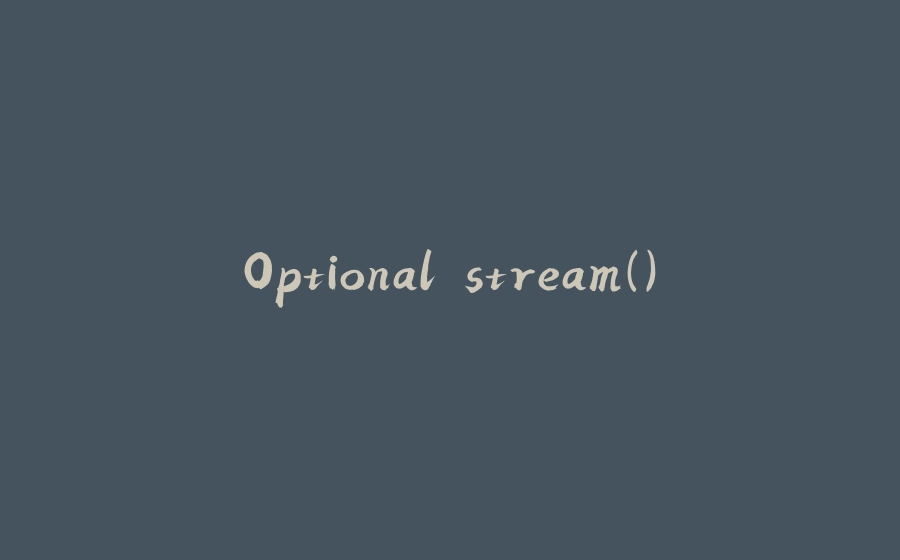This week, I learned about a nifty “new” feature of Optional that I want to share in this post. It’s available since Java 9, so its novelty is relative.
Let’s start with the following sequence to compute the total price of an order:
public BigDecimal getOrderPrice(Long orderId) {
List<OrderLine> lines = orderRepository.findByOrderId(orderId);
BigDecimal price = BigDecimal.ZERO; // 1
for (OrderLine line : lines) {
price = price.add(line.getPrice()); // 2
}
return price;
}
Enter fullscreen mode Exit fullscreen mode
- Provide an accumulator variable for the price
- Add each line’s price to the total price
Nowadays, it’s probably more adequate to use streams instead of iterations. The following snippet is the equivalent to the previous one:
public BigDecimal getOrderPrice(Long orderId) {
List<OrderLine> lines = orderRepository.findByOrderId(orderId);
return lines.stream()
.map(OrderLine::getPrice)
.reduce(BigDecimal.ZERO, BigDecimal::add);
}
Enter fullscreen mode Exit fullscreen mode
Let’s focus on the orderId variable: it may be null.
The imperative way to handle null values is to check it at the beginning of the method – and eventually throw:
public BigDecimal getOrderPrice(Long orderId) {
if (orderId == null) {
throw new IllegalArgumentException("Order ID cannot be null");
}
List<OrderLine> lines = orderRepository.findByOrderId(orderId);
return lines.stream()
.map(OrderLine::getPrice)
.reduce(BigDecimal.ZERO, BigDecimal::add);
}
Enter fullscreen mode Exit fullscreen mode
The functional way is to wrap the orderId in an Optional. This is what the code looks like using Optional:
public BigDecimal getOrderPrice(Long orderId) {
return Optional.ofNullable(orderId) // 1
.map(orderRepository::findByOrderId) // 2
.flatMap(lines -> { // 3
BigDecimal sum = lines.stream()
.map(OrderLine::getPrice)
.reduce(BigDecimal.ZERO, BigDecimal::add);
return Optional.of(sum); // 4
}).orElse(BigDecimal.ZERO); // 5
}
Enter fullscreen mode Exit fullscreen mode
- Wrap the
orderIdin anOptional - Find relevant order lines
- Use
flatMap()to get anOptional<BigDecimal>;map()would get anOptional<Optional<BigDecimal>> - We need to wrap the result into an
Optionalto conform to the method signature - If the
Optionaldoesn’t contain a value, the sum is0
Optional makes the code less readable! I believe that readability should trump code style every single time.
Fortunately, Optional offers a stream() method (since Java 9). It allows to simplify the functional pipeline:
public BigDecimal getOrderPrice(Long orderId) {
return Optional.ofNullable(orderId)
.stream()
.map(orderRepository::findByOrderId)
.flatMap(Collection::stream)
.map(OrderLine::getPrice)
.reduce(BigDecimal.ZERO, BigDecimal::add);
}
Enter fullscreen mode Exit fullscreen mode
Here’s the summary of the type at each line:
| Snippet | Type |
|---|---|
Optional.ofNullable(orderId) |
Optional<Long> |
stream() |
Stream<Long> |
map(orderRepository::findByOrderId) |
Stream<List<OrderLine>> |
flatMap(Collection::stream) |
Stream<OrderLine> |
map(OrderLine::getPrice) |
Stream<BigDecimal> |
reduce(BigDecimal.ZERO, BigDecimal::add) |
BigDecimal |
Functional code doesn’t necessarily mean readable code. With the last changes, I believe it’s both.
To go further:
Originally published at A Java Geek on February21st 2021
原文链接:Optional.stream()























暂无评论内容